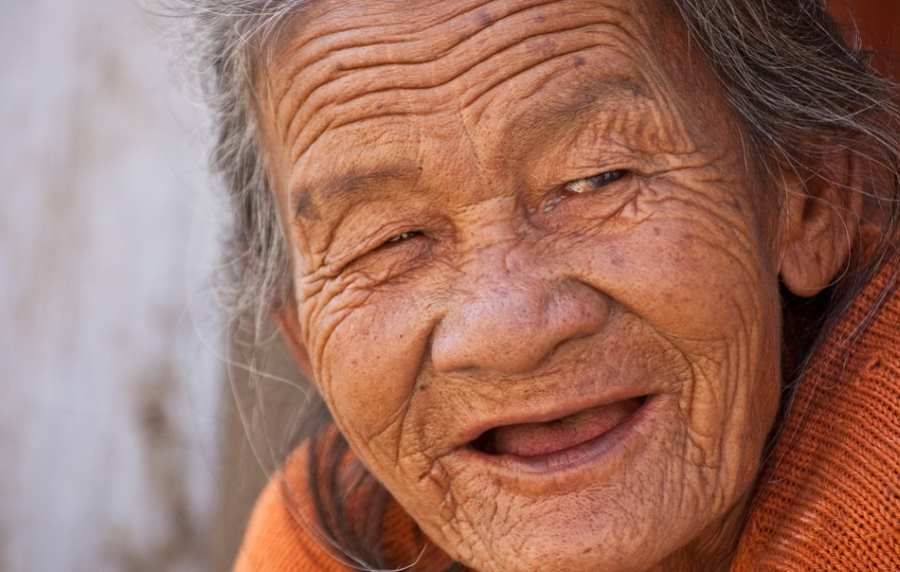How many years can a person live? Researchers say there is no natural limit to the
There is no natural limit to human life expectancy, or at least we haven’t reached it yet, researchers argue in a new study. According to them, mortality rates stop rising after reaching 105 years of age.
Since 1900. Life expectancy has more than doubled worldwide. This is due to better health care, better quality food or new medical advances, but it is actually influenced by a whole host of factorsow. However, a new study of long-lived Italiansow indicates that we have not yet reached gorne life expectancy limit.
– If there is a biological limit, we are still far from it,” said Elisabetta Barbi, a demographer at the University of Rome. Dr. Barbi and her colleagues have published research on the limits of human life in a journal „Science”.
The current record for the longest-lived person in the world belongs to a French citizen, whoora died 21 years ago. Jeanne Louise Calment lived for 122 years and 164 days. This is the oldest verified age ever recorded. Interviews with her show that in her old age she has maintained a good nastroj. – I only have one wrinkle and I’m just sitting on it – moShe wowed after turning 110 years old.
In 2016. scientists at the Albert Einstein College of Medicine have boldly concluded that Ms. Calment lived longer than the human body allows. Researchers have ruled that the end of life is estimated to be around 115 years old. Many scientistsow has criticized these studies. – The data set was very poor, and the statistics were seriously flawed, he said in aoat the time Siegfried Hekimi, a biologist at McGill University.
Anyone exploring the limits of longevity must face dwom headowny statistical challenges. There are not many living people of advanced age, and the older people get, the more often they lose track of how long they really live. – In this research, the problem is to make sure that the age is real,” said Barbi.
Barbi and her colleagues scoured Italian databases between 2009 and 2015 looking for waspsob, whichore have reached the age of 105. For confirmation, these individuals had to have their birth certificates. In this wayob scientists found 3863 people. The researchers tracked down death certificates for those whooers died during the study period and determined the rate at which they died rodifferent age groups.
Death statisticsow begin shortly after birth. The rate decreases in the first years of life, only to increase thereafter among theod people in their 30s. The longer we live, the risk of death increases – here is nothing revealing. At age 50, the risk of dying within the next year is more than three times higher than at age 30.
A steep jump in the rateoin mortality begins at the waspob after their 70th and 80th birthdays. Chances of death then double every 8 years or so. If mortality rates were to increase exponentially at older ages, inotime, the human lifespan would have such a limit, as researchers at the Albert Einstein College of Medicine proposed in 2016.
But a compositeoł under the guidance of Barbi came to a different conclusionow. Scientists studying Italian seniorsow have discovered that mortality rates stop increasing at very advanced ages, specifically after reaching 105 years of age – emphasize the authors of the publication. That is, a 106-year-old has the same probability of living to his 107th birthday as a 111-year-old whoory waits 112 spring. The probability is 50 percent.
– We have not yet even approached the maximum lifespan, if such in ogole exists – said Kenneth W. Wachter, a demographer at the University of California at Berkeley, whoory is wspoauthor of the publication.
In studies on laboratory animals, such as fruit flies and nematodes, a similar pattern has been noted. Many of these organismsow show so-called mortality plateaus, in ktohe mortality growth curve flattens out and the chances of death stop increasing after a certain age. The researchers also noted that as the years passed, more and more waspsob reaches an age of 105 years.
It should be noted that the study refers to the acceleration and deceleration in mortality rates, not the chances of living p aloneoold age. These are still not good. Only two in 100,000 women live to 110 years old. For men, those odds are even lower at 1 in 500,000. This is also shown by the data, on whichorych scientists have been working. Of the 3863 osob, ktore included in the study, as many as 3373 were women.
New study fails to explain why death ratesow are declining in old age. One possibility is that people with weak genes die earlier than the more resilient ones, which is why the toughest seniors remain alive. Many factorow, including genes likely responsible for their endurance and determining these factorsow may suggest ways to reach a ripe old age.
– The work shows a very reliable scheme with very good data – said demographer Joop de Beer of the Dutch Interdisciplinary Demographic Institute in The Hague, ktory was not involved in the research. But his colleague Leonid Gavrilov of the University of Chicago in Illinois mowi that he has doubts about the quality of the data and is not convinced about the research. – This publication will not resolve the heated debate on human life expectancy, but will inflame it even more – admitted.
